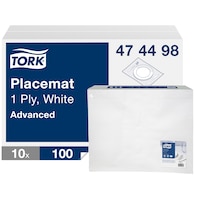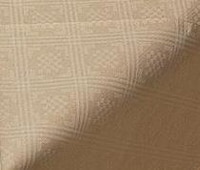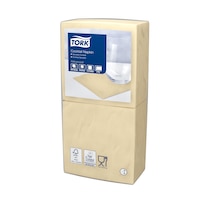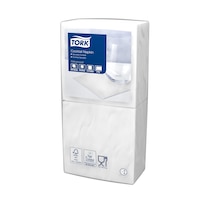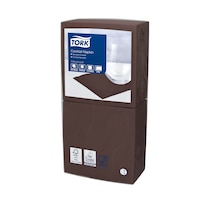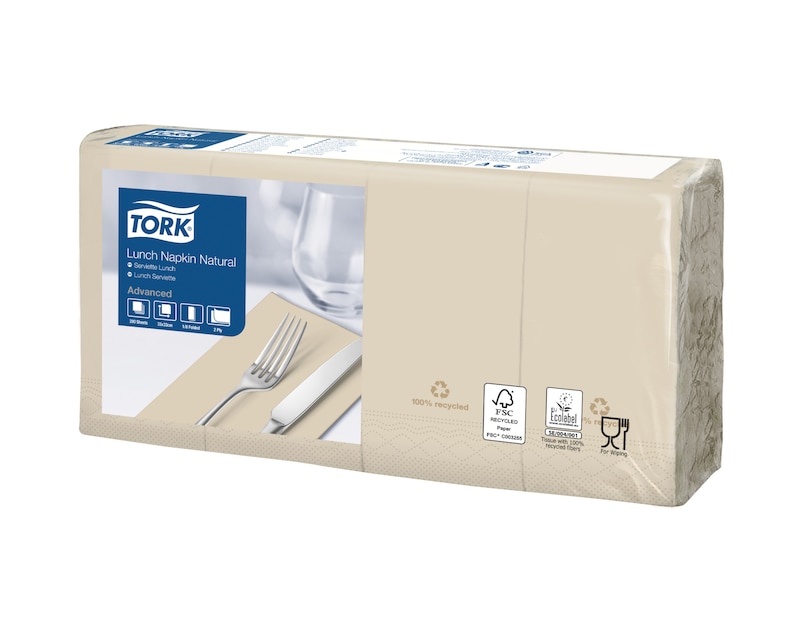

Tork Natural Environmental Print Lunch Napkin 1/8 Folded
Description
- For restaurants with a focus on sustainability, Tork Natural Napkins make it easy to show customers concern for the environment. The natural brown colour enhances image and guests recognise a recycled napkin
- Pre-printed with the claim “100% recycled“ to enhance the environmental message of the napkin
- Engage with guests through custom print - 75% of napkin users read the message
- No bleaching or additional dyes brings a natural colour
- Industrial compostable product*
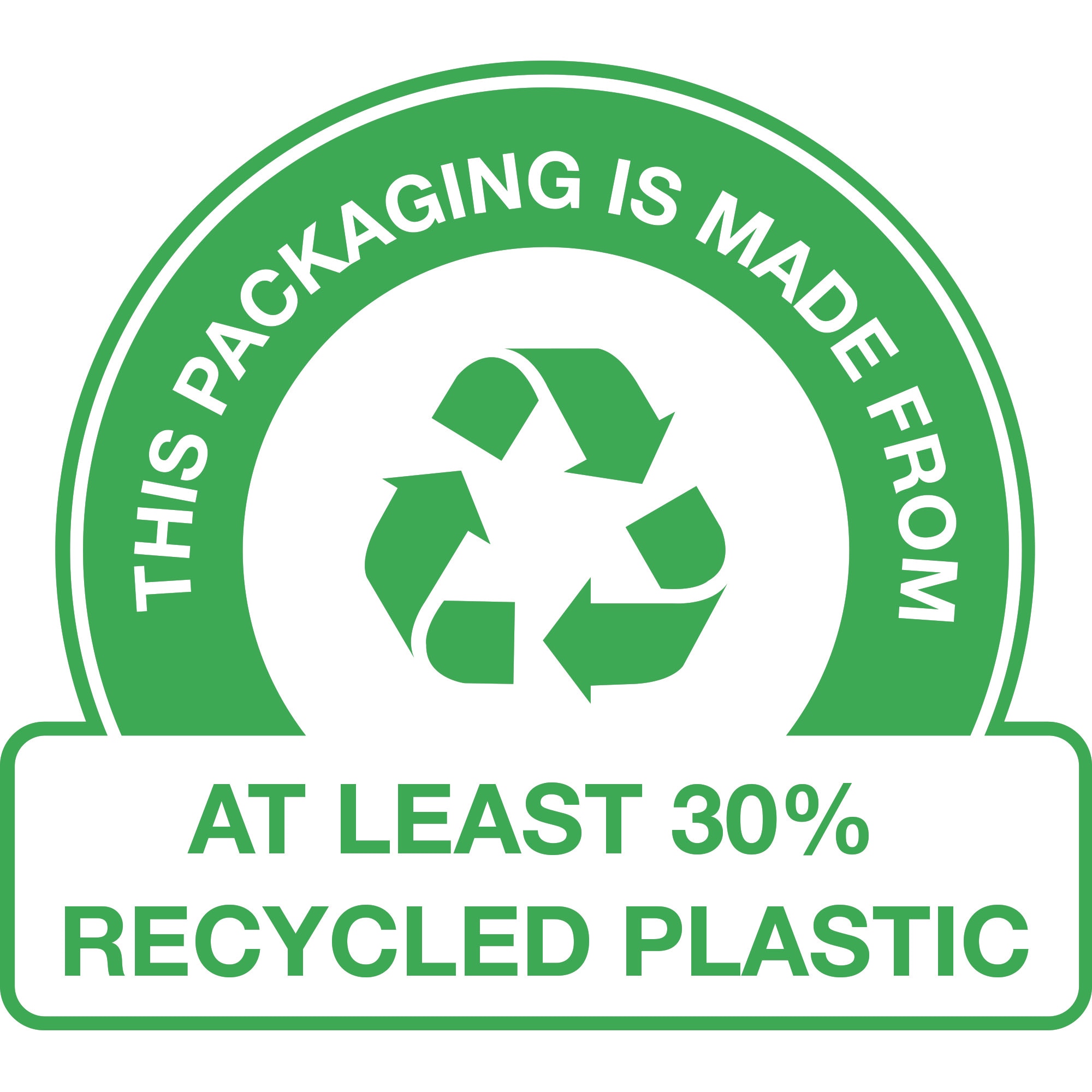
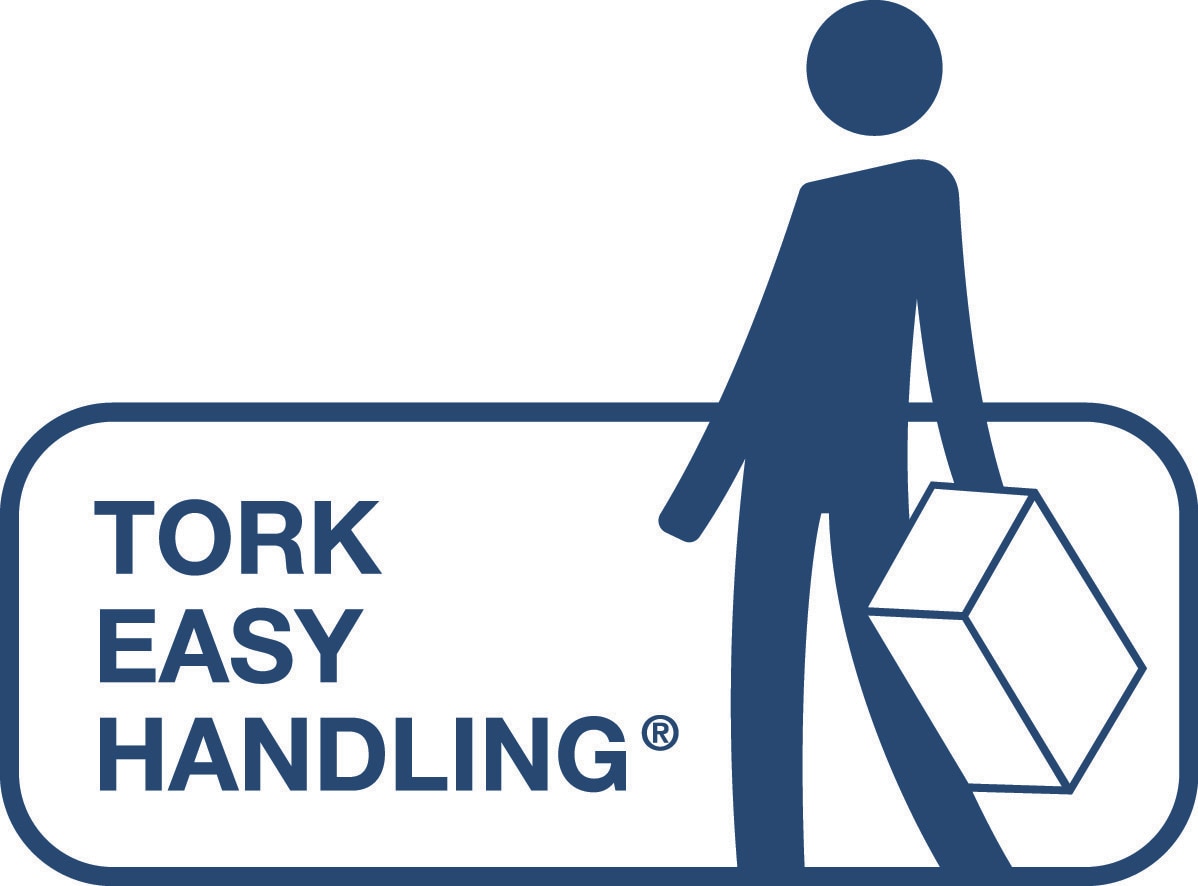
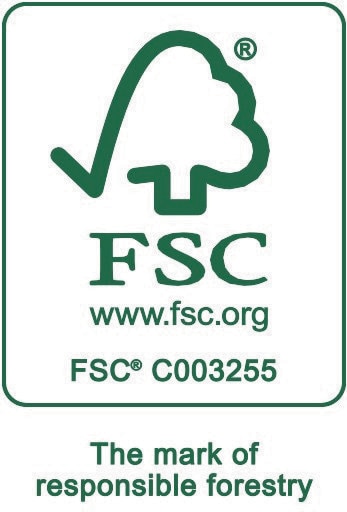
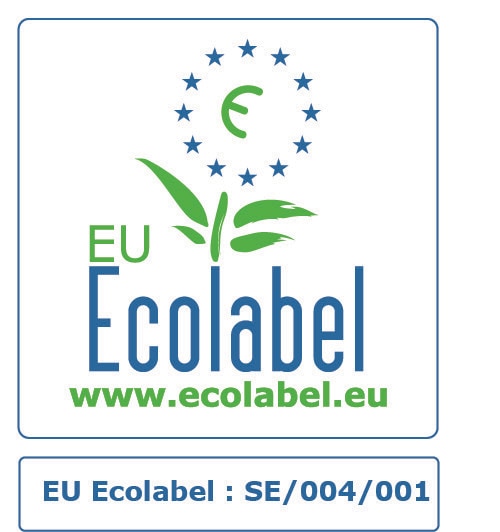
Product and delivery data
Delivery data
Content
The product is made from
Recycled fibres
Chemicals
The packaging material is made from paper or plastic.
Material
Recycled fibres
Recycling of paper is an efficient use of resources as the wood fibres are used more than once.
High demands are put on quality and purity of recovered paper, considering each step of the chain (collecting, sorting, transporting, storage, use), to ensure safe and hygienic products.
Recycled fibres can be produced from different types of recovered paper, such as collected newsprint, magazines, office waste, paper cups, drink cartons, corrugated boxes and paper hand towels. The choice of recovered paper grades is made for each product, depending on its specific requirements on performance properties and brightness. The paper is dissolved in water, washed and treated with chemicals under high temperature and screened to separate out impurities.
Bleaching of pulp, used for tissue, is primarily a process to remove substances that could have a negative effect on important properties of the finished product such as purity, absorption, strength and colour of the pulp.
Bleaching of the recycled fibre pulp is done using chlorine-free bleaching agents (hydrogen peroxide and sodium dithionite). Some of our products are bleached and some are not.For bleached products we use bleaching agents (to increase the brightness of pulp from recovered paper).
Chemicals
All chemicals (process aids as well as additives) are assessed from an environmental, occupational health and safety and product safety point of view.
To control product performance we use additives:
- Wet strength agents (for Wipers and Hand Towels)
- Dry strength agents (are used together with mechanical treatment of the pulp to make strong products like wipers)
- For coloured papers dyes and fixatives (to secure perfect fastness of the colour) are added
- For printed products printing inks (pigments with carriers and fixatives) are applied
- For multi ply products we often use water soluble glue to secure the intregrity of the product
In most of our mills we do not add optical brighteners but it often occurs in recovered paper since it is used in printing paper.
We do not use softeners for professional hygiene products.
High product quality is secured through quality and hygiene management systems throughout production, storage and transport.
In order to maintain a stable process and product quality the paper manufacturing process is supported by the following chemicals/ process aids:
- defoamers (surfactants and dispersing agents)
- pH-control (sodium hydroxide and sulphuric acid)
- retention aids (chemicals that help to agglomerate small fibres to prevent fibre loss)
- Coating chemicals (that help to control the creping of the paper to make it soft and absorbent)
To reuse broke and to utilise recovered fibres we use:
- Pulping aid (chemicals that help to repulp wet strong paper)
- Flocculation chemicals (that help to clean out printing inks and fillers from recovered paper)
- Bleaching agents (to increase the brightness of pulp from recovered paper)
In the cleaning of our waste water we use flocculation agents and nutritients for the biological treatment to secure that no negative impact on water quality comes from our mills.
Food Contact
This product fulfills the legislative requirements for Food Contact materials, confirmed by external certification performed by a third party. The product is safe for wiping food contact surfaces and may also come occasionally into contact with foodstuffs for a short period of time.
Environmental certification
This product is certified with the EU Ecolabel with certificate number SE/004/001.
This product is certified for FSC® with certificate number SA-COC-008266.
This product is certified Industrial Compostable with certificate number EN13432.Packaging
Fulfilment of Packaging and Packaging Waste Directive (94/62/EC): Yes
Article creation date and latest article revision
Date of issue: 10-10-2019
Revision date: 01-10-2024
Production
This product is produced at Altopascio mill, IT and certified according to ISO 9001, ISO 14001 (Environmental management systems), CoC-PEFC, ISO 45001, ISO 50001 and FSC Chain-Of-Custody.
Destruction
This product is suitable in normal waste handling systems by the community. Used products should not be handled over to recycling systems.
Essity UK Ltd, Southfields Road, Dunstable, Bedfordshire LU6 3EJ, United Kingdom
References
The product is industrially compostable according to EN 13432. Local restrictions may apply. Before disposal in industrial compost bins, please check with local authorities to confirm that the product is accepted. Please also ensure that the product has not been used in connection with hazardous or non-compostable substances.


